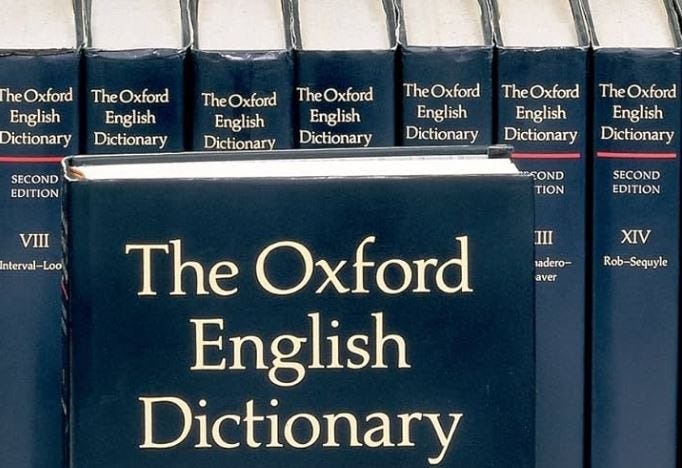Twenty Nigerian words have made entries into the Oxford English Dictionary (OED) following its latest updates.
The new 20 entries include terms like 419, abi, adire, agbero, area boy, cross-carpet, cross-carpeting, eba, Edo and gele.
The others are jand (noun, verb), janded (adjective), Japa (noun, verb), Kanuri, Kobo, Naija, suya, Yahoo, Yahoo boy and Yarn Dust.
These are in addition to at least 57 Nigerian words already in the dictionary.
A Nigerian English consultant to the Oxford English Dictionary, Kingsley Ugwuanyi, stated this on LinkedIn.
The linguistic researcher said “I’m thrilled to announce that the Oxford English Dictionary (OED) from Oxford Languages | OUP has officially published its latest updates, featuring a fantastic collection of Nigerian English words that beautifully reflect Nigeria’s culture, creativity, and the unique ways we express ourselves as Nigerians.
“This time, I drafted most of the words and had the incredible opportunity to provide their pronunciations. So, when you explore the OED online and click on the pronunciations, you’ll hear my voice bringing these words to life. This milestone is the result of years of hard work and dedication. I encourage Nigerians to share their favourite words from the list and suggest new ones for future updates,” Mr Ugwuanyi stated.
These additions underline Nigeria’s cultural diversity, daily life, and street culture while highlighting the rising influence of Pidgin English across Africa and beyond.
Many of these words serve multiple grammatical functions.
The OED undertakes quarterly review to keep the dictionary abreast with the ever-changing nature of the English language.
The latest update is builds on a similar addition in 2020 when the dictionary added 29 Nigerian words – such as danfo, okada, next tomorrow, and mama put—the first significant inclusion of Nigerian words since the OED’s inception in 1884.
The OED classified Nigerian Pidgin as a rich source of new words, adding that it showcases Nigeria’s unique contribution to global English, with most additions being borrowings or coinages from the 1970s and 1980s.









